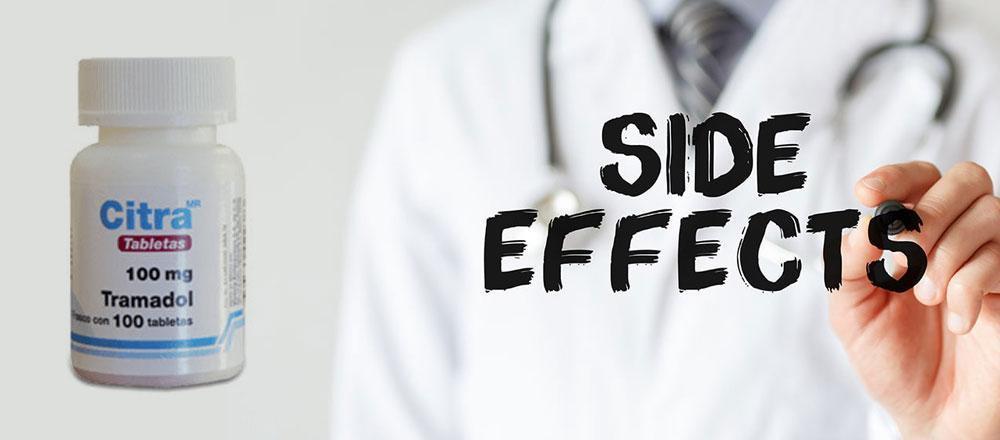When using Citra, adverse effects usually arise only if the patient exceeds the specified dose level. Side effects are also more common among persons who already have a disease that does not respond well to this medicine.
An adverse impact is defined by the National Cancer Institute as “an unforeseen medical condition that occurs during treatment with a medicine or other therapy.” These consequences are not exclusive to any one therapy because all medical remedies have the possibility of side effects.
| Side Effects | Expression | Citra Side Effects |
|---|---|---|
| Common | Mild | Dizziness, constipation, headache, itchiness, sweating, heartburn, dry mouth, diarrhea |
| Uncommon | Mild | Rash, hives, mild breathing difficulty, congestion, confusion, coordination issues |
| Rare | Severe | Respiratory depression, heart rhythm problems called QT prolongation, urine retention |
These side effects are usually caused by:
- Individual response or allergy to a certain therapy substance
- A negative domino effect in which a drug is used to cure an illness but also harms healthy cells in the process.
- Dose issues: the dosage may be either high or too low and may need to be adjusted.
- Interactions between various medications administered together
Patients should keep in mind that these adverse effects do not occur with every usage of the pill, and they may not occur at all at times. As a result, patients should not be discouraged from using the pill, but rather encouraged to learn more about it.
Is Citra Harmful?
- All medical procedures include some level of risk. There are several factors that may discourage customers from using pharmaceuticals, ranging from minor side effects to somewhat more difficult reactions. Because each Citra dosage has the same hazards, most people may see the pill as harmful.
- Patients should keep in mind, however, that the FDA will only approve a medication if the projected benefits outweigh the known hazards. When this pain reliever was initially licensed in 1995, customers labeled it unsafe owing to its opioid categorization.
- They frequently related the negative effects of opioids to Citra medications. However, this belief is incorrect because the pill does pose opioid dangers. This is because the medication is a synthetic opioid rather than a natural one.
- This minimizes several of the opioid-related dangers, such as tolerance, dependency, addiction, and others. Nonetheless, the pill is still strictly monitored since improper use might result in hazardous side effects. Essentially, the pill is a safe and effective option for people who require the analgesic effects.
Citra Dependence
Patients may not be concerned about addiction when using this pill because it has been related to various safety studies. While Citra 100mg is one of the least powerful opioid medicines in its class, addiction is still possible if taken improperly. Patients who continue to use the pill may acquire an increasing level of tolerance, making the medication less effective. This will result in greater dosages being used and consequent addiction, as well as the development of specific citra adverse effects.
As a result, it is critical to be aware of addiction warning signals such as:
- Nausea
- Constipation
- Drowsiness
- Confusion
- Coordination issues
- Slower breathing rate when dosages are gradually increased
- Hyperalgesia (increased sensitivity to pain at larger dosages) (increased sensitivity to pain with higher doses)
Symptoms of Citra Withdrawal
When Citra tramadol 100mg is used to treat pain, it regulates and controls the sensation of pain in the same manner as an opioid would. Patients frequently believe that because this medication acts like an opioid, it is also associated with opioid-related issues such as withdrawal symptoms; however, this is untrue.
Citra, unlike other opioids, affects numerous neurotransmitters in the brain, including serotonin. Patients may experience withdrawal symptoms associated with antidepressants rather than opioids as a result of this impact. Patients in withdrawal frequently experience symptoms comparable to tramadol side effects before experiencing the following:
- Diarrhea
- Gooseflesh
- Psychosis
- Agitation
- bloated stomach
- Sweating or chilling
- Having difficulty sleeping
- Appetite loss
- nauseousness or vomiting
Patients will suffer at least two to three of the aforementioned symptoms. They usually happen a day or two after the last scheduled dose. The effects of citra on opioid receptors in the brain are generally moderate, which indicates that the brain will adjust to the lack of the chemical more easily. As a result, withdrawal symptoms may diminish after a week or so.
We sell a large choice of strong sleeping pills and anxiety medicine without a prescription at www.pharmauniversal.com, in addition to the strongest painkillers on the market! If you have any questions, please contact us for a detailed response.

